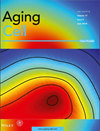投稿信息
稿件收錄要求
Overview
?
The aim of?Aging Cell?is to publish the highest quality, innovative research addressing fundamental issues in the biology of aging. For publication in?Aging Cell, the work must provide a major new contribution to the understanding of aging and be of general interest to the community.?Aging Cell?seeks to cover all areas of geroscience, highlighting research that uncovers mechanistic aspects of the aging process, as well as the links between aging and age-related disease. Observations of novel aging processes without substantial mechanistic insight will be considered, but should be of especially high impact for the field. Topics including, but not limited to, nutrient-responsive signaling pathways, neuronal and endocrine signaling pathways, tissue interactions, genetic and epigenetic regulation and integrity, proteostasis, circadian rhythms, ROS and mitochondria, cellular senescence, stem cells, progerias and interventions that affect aging are encouraged. All experimental approaches, including plant models, are welcome. Papers that focus on the pathogenesis of a specific age-related pathology are also of interest, but should offer new insights into the fundamental links between aging and disease.
?
Aims and Scope
?
Aging Cell?covers:
-
Genetics and functional genomics: mutations affecting longevity; gene homologies; organismal and cellular aging; gene manipulation.
-
Signaling and gene expression: mechanisms linking age-associated changes with phenotypes and physiology; intracellular signaling; interactions between cells and tissues; hormonal, immune, and inflammatory systems.
-
Cell proliferation, aging and death: replicative senescence; apoptosis; telomere biology and other intrinsic and extrinsic influences; chronological cellular aging; phenotypes of aging cells.
-
Cell stress and damage: extrinsic and intrinsic influences of free radicals on cells and tissues; free radical defense and damage; free radicals as signaling molecules; stress and aging.
-
Stem cells and aging: effects of age on stem cell generation; migration and homeostasis; stem cell-niche interactions; regulatory mechanisms.
-
Integrative physiology: outcomes of aging processes at organismal, cellular and molecular levels.
-
Biodemography and comparative studies: population and cross-species comparative studies.
-
New theories of aging and longevity: discussion at the broadest level of established and novel theories of aging and longevity.
?
Aging Cell?was launched in 2002 and is published bimonthly. Article types include:
-
Novel, peer-reviewed research, concentrating in the areas described above.
-
Reviews and minireviews assessing high-profile recent research.
-
Commentaries evaluating especially important current papers in the Journal or other leading journals.
-
Development and criticism of general theories of biological aging.
?
Keywords
Aging, ageing, longevity, lifespan, cell senescence, cell death, apoptosis, stress, free radicals, telomerase, telomeres, gerontology, geriatric?
Abstracting and Indexing Information
?
- Academic Search (EBSCO Publishing)
- Academic Search Alumni Edition (EBSCO Publishing)
- Academic Search Premier (EBSCO Publishing)
- CAS: Chemical Abstracts Service (ACS)
- CSA Biological Sciences Database (ProQuest)
- Embase (Elsevier)
- InfoTrac (GALE Cengage)
- Ingenta Select
- ISI Alerting Services
- Journal Citation Reports/Science Edition (Clarivate Analytics)
- MEDLINE/PubMed (NLM)
- Neurosciences Abstracts (ProQuest)
- ProQuest Biological Science Collection (ProQuest)
- PubMed Dietary Supplement Subset (NLM)
- Science Citation Index Expanded (Clarivate Analytics)
?




